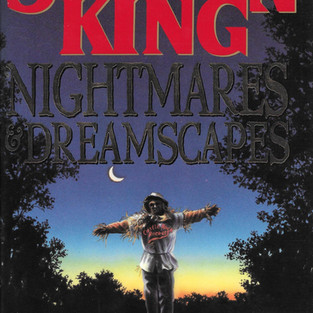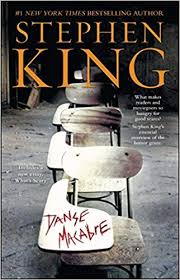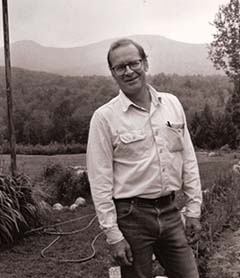- Dr. Bob

- Jan 2, 2021
- 5 min read
What can we say of the agita and tsouris that was 2020 other than it, as all things must, has passed -- although we'll need to wipe carefully to rid ourselves of the last "cling-ons."
The lessons we sadly learned, yet again (poignant for my family descended from Holocaust and Russian pogrom survivors), include that civilization is a fragile veneer ... that chaos closely underlies our fragile social order, and that we must never ever take our liberty or our way of life for granted, that opinions never trump (pardon the verb) science, and empathy and kindness are more valuable, more vital, to our societal well-being than even the strict enforcement of the law. As Rabbi Hillel the Elder (circa 100 BCE) answered, and by his answer converted, the mocking proselyte who asked "Teach me the entire Law in the time I can stand on one foot":
"Do not do to others what you do not wish them to do to you. That is the whole Law. Now go and study it." --Babylonian Talmud, Shabbat 31a
I think he also said, "Dumpkoff! Wear a mask!" but don't quote me on this.
But perhaps the preceding is not what you are looking for? How about blessings? The blessings of 2020 for me include: none of my family contracted COVID or was seriously ill, none lost their jobs, and the future for us all (my family and, I hope, yours) looks brighter and more hopeful in 2021.
With my wife and my 2020 travel plans tossed into the dustbin, we began the dreaded post-retirement project of house decluttering. Yet, even this onerous task after so many decades proved a blessing. Amid the clutter, I rediscovered childhood joys (and toys) such as fifty-year old model rocket kits to build and metal Cthulhu Mythos miniatures to paint (ha!).

During another long-delayed task of cataloging my library [I'm on now as Dr_Bob], I discovered many lost treasures, and I have spent the last half-year reading/rereading one to two books per week: histories, classic literature, Judaica, as well as science fiction and fantasy, of course.
Of these, I'll briefly mention the three, unjustly out-of-print, Vandarei fantasy novel, also known as The Kendreth Cycle, by Joy Chant (Red Moon and Black Mountain, The Gray Mane of Morning, and When Voiha Awakes). As per my Library Thing review of the last novel:
Each volume of Ms. Chant's Kendreth cycle is unique, and each successively stronger in emotional insight and depth. Sadly, this is the last novel of Vandarei from her pen. Where "Red Moon, Black Mountain" was classical wonder literature with echoes of Narnia, Middle-Earth, and Scripture; and "The Gray Mane of Morning" was heroic fantasy to stand among the finest such tales, recounting a pivotal event, both just and terrible, that forever changes her world; "When Voiha Awakes" is a romance that pierces and reveals in all its joys and sorrows the human experience of and capacity to love. Set in a matriarchal society, the gender role reversal Ms. Chant artfully depicts highlights the accepted injustices and follies of our own in a manner that is enlightening and never pedantic. The further I read, the more I had to read as Ms. Chant relates with unforgiving honesty and insight "emotional levels" rarely achieved in works of fantasy, to paraphrase the review by Isaac Asimov's Science Fiction magazine. It is a work I find I appreciate much more at age 62 than when I was a much younger and less-worldly (and less love-experienced) man. As in all three Kendreth novels, Ms. Chant's prose is near perfect, her skill in this particular work more in the artful, at times playful, conveyance of human feelings rather than the powerful evocative description of the first two novels. This short novel is a delight for any who've loved.
I also discovered that Ms. Chant wrote only two short stories set in the same world -- one that was only ever published in German. This tale, "Die Waurem von Kophitel (The Walls of Kophitel) I, being a completist (and a touch -- okay, a heavy touch -- OCD, perhaps) and after failing in my attempt to contact Ms. Chant, reverse-translated the tale back into English for my personal reading pleasure. It, too, is lovely.
My favorite new novels of the year were, I am pleased to say, written by friends:
The King of Next Week by E. C. Ambrose, a delightful historical fantasy romance with sailing ships, beautiful djinn, partly set in my home state of Maine,
The Back of the Beyond by James Stoddard, an epic fantasy in the modern classic fantasy style of Lord Dunsany, E.R.R. Eddison, James Branch Cabell, where a diverse group of adventures travels even beyond the lands of Faerie where everything is sentient -- animals, trees, the sun, moon, and stars. Pure magic. And:
The Last Campaign by Martin L. Shoemaker (for whom I was a "shiva" consultant), the second of his acclaimed hard SF "Near Earth Mysteries," where a murder conspiracy threatens humanity's fledgling colonization of Mars. [Link: ]
Of my own writing, I managed to jot down about 75,000 words, 50,000 of which earning two acceptances and an exciting project (by invitation) for a possible third! But, alas, as is the nature of the business, particularly during a pandemic, only a single tale of ~6000 words actually saw print.
To quote Vonnegut's Billy Pilgrim, "So it goes."
My short story "The Mouth of the Wicked," , as recounted elsewhere on this site, was published in the Inklings Press anthology Tales From the Pirates Cove in August. The anthology collects twelve tales of swashbuckling adventure on the high seas and in outer space. Eleven of the stories are science fiction and fantasy, and the oddball twelfth . . . is mine :D , historical fiction concerning the 17th-century Jewish "pirate" Moses Cohen Henriques
("Yes, Elizabeth. There were Jewish pirates.").
Reviews were, overall, kind:
'The Mouth of the Wicked,' by Bob Finegold, tells a pirate tale filled with many twists and turns. It’s a tale about family, and loss, and how seeing the whole picture can change our perception of what we know, or think we know. I enjoyed this story for the history and the passion of the characters... --Geoff Habiger, Goodreads reviews
The camaraderie of the writing and publishing community has been one of my greatest blessings during this year of lockdowns and isolation and, in truth, of these my first four years post-retirement. I do hope to be more productive in my writing in 2021.
Shanah tovah umetukah!
May 2021 be a year of renewed hope, greater joy and appreciation of life's gifts, and love for everyone!
Respectfully,
Bob


















